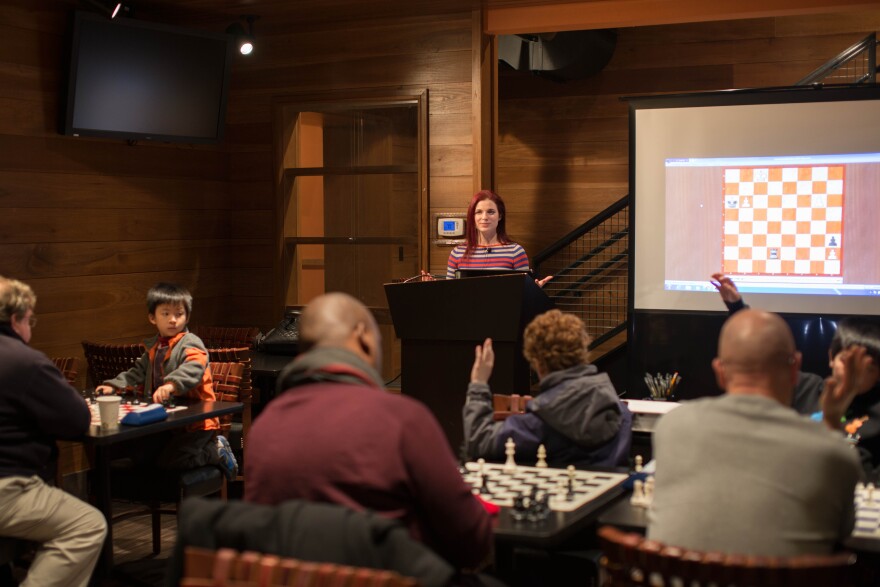The rhetoric has floated around for decades.
“It develops your memory, improves your test scores — chess is good for your brains!” They always say. “It boosts your math! And it helps your science! Chock full of cognitive benefits, indeed!”
By now, the claim that chess comes packaged with hidden educational perks is a hype certainly heard around the world. And how could it not be believed? Just find some random piece of research that supports such big talk, tie it together with obvious, awesome-sounding hyperbole — like “decision-making skills” and “higher-order thinking” — and boom: You’ve got yourself some Grade-A propaganda.
Over the years, all this talk has given a rather rosy-colored narrative that always ends in support of chess curriculum implementation. But recently, the Chess Club and Scholastic Center of Saint Louis, whose scholastic program branched out to more than 3,000 students and hundreds of area schools last year, dropped the rhetoric and set out to discover if chess actually has an effect on its students.
Empirically, can all the talk walk the walk?
A year ago, the CCSCSL set out to apply a rigorous and critical eye of existing chess studies by commissioning Basis Policy Research, an independent research firm that focuses on K-12 educational exploration. The goal was to survey the entire landscape of existing chess research, digging back through more than four decades of random studies, and compile a literature review of what was actually known about chess’ impact on student outcomes.
“We found an initial group of studies that met a very general preset criteria, meant only for research that looked at chess programming with an outcome measure that was not chess-related,” said Anna Nicotera, a senior associate at Basis and lead author of the chess literature review. “For instance, some studies studied outcomes that examined overall chess skills, like ‘Did this help students increase their chess rating?’ Instead, we were looking for a set of outcome measures that included student performance — math test scores, cognitive performance and behavioral.”
Basis narrowed its review down to 24 studies focusing on research of K-12 students as well as only studies that offered randomized assignment for both treatment and control groups. Roughly half studied “after-school” chess interventions, such as a competitive scholastic chess club, or “in school” intervention, more closely related to the scholastic programming offered by the CCSCSL.
“‘After school’ programming were attempts to provides chess skills, such as kids who wanted to compete in chess through tournament play and were part of a chess club,” Nicotera said. “The in-school programs were much more related to what the CCSCSL is doing scholastically, having a broader mission in using chess to think about strategic problems overall, and other things that are related to academic performance.”
The collective findings were extremely positive — and actually, very well in stride with all the decades-old rhetoric. The “after school” studies suggested that chess intervention brought a positive and sizable, statistically and educationally significant, effect on math test scores. The “in school” studies corroborated the sizable boost to math test scores, with a further positive impact on cognitive measures.
And the idea of using chess as a springboard for other academic skills? "... it had an impact on student performance for both math and cognitive measures with an effect size that was relatively large compared to other programming,” Nicotera said. “The fact that chess can be implemented in a relatively cheap way — compared to some other academic program where you may need to buy full curriculum, textbooks and training materials — these were meaningful findings that these programs were having such an impact on student performance in a relatively cost-effective mechanism.”
With one of the only studies that systematically reviewed years of chess research, Nicotera was invited to present her findings as the keynote speaker in the 2014 Chess and Education Conference in London, connecting her with large, ongoing studies from around Europe and impacting how they conducted their own research.
“It was definitely a community that understood it, what we were doing and why this was being doing. People appreciated it, they wanted to be involved,” Nicotera said. “The big thing we found from these 24 eligible studies, they had so few details about what a ‘chess program’ actually looked like:
"How long did instruction take place?
"Who was the instructor — an expert or a school teacher?
"There were very few details, like a black box of some chess instruction provided over some period of time — these were outcomes that those researchers at the chess conference were honing in on. They wanted to parse out those details and find out the differences between implementation.”
The literature review is a huge first step for the CCSCSL, acknowledgment of the research that exists and laying the groundwork for future research that may be implemented through the club’s expansive scholastic initiative. The Basis Policy Research chess literature review has kicked off a new Research Portal, meant to serve as a repository to all global research — and to keep St. Louis on yet another forefront of chess.
Brian Jerauld is the 2014 Chess Journalist of the Year, and the communications specialist for the Chess Club and Scholastic Center of St. Louis. He is a 2001 graduate of the University of Missouri-Columbia School of Journalism and has more than a decade of experience writing about boats, sports and other ways to relax. This column is a weekly look around St. Louis, the U.S. Capital of Chess.




